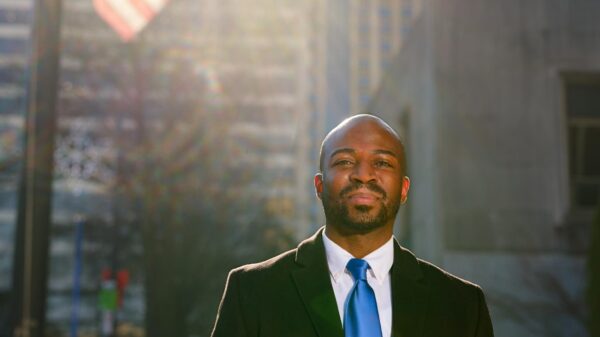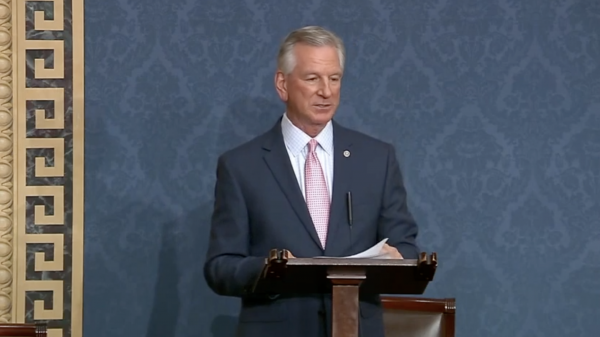The Alabama Supreme Court’s recent ruling, declaring embryos as children under the law, has ignited a firestorm of controversy, and rightfully so. This decision not only lacks scientific basis but also reflects a troubling intrusion of religious ideology into legal matters, raising serious concerns about reproductive rights and healthcare in the state.
Let’s dissect the ruling. Embryos, in the context of in vitro fertilization (IVF), are a far cry from fully formed children. They are clusters of cells with the potential for life, but to legally and morally equate them with born children or gestating fetuses is a stretch beyond reason. This classification stems from a particular religious viewpoint, one that doesn’t align with the diverse beliefs of our society or the principles of medical science.
The defendants in the original lawsuit, The Center for Reproductive Medicine and the Mobile Infirmary, had petitioned the justices to reconsider the issue. Additionally, The Medical Association of the State of Alabama and the Alabama Hospital Association filed a brief supporting the request for a rehearing of the February decision. They emphasized that despite the resumption of IVF services, the ruling continues to cast a shadow of uncertainty over the medical community.
However, the Alabama Supreme Court on Friday declined to grant a rehearing on what has become its most contentious ruling of the year. This ruling, issued in the case of James LePage, et al. v. The Center for Reproductive Medicine and Mobile Infirmary Association, deemed frozen embryos to be akin to unborn children under state law.
The practical implications of this decision are dire. IVF clinics, vital lifelines for many hopeful parents, were forced to halt operations out of fear of legal liability. Patients who rely on these clinics for their chance at parenthood found their dreams dashed, all due to a ruling that prioritizes ideology over the well-being of individuals and families.
While the Alabama State Legislature attempted to remedy the situation with a hastily drafted law, the underlying issues remain unresolved. The fact that the Supreme Court denied a rehearing on this matter speaks volumes about the entrenched nature of its stance, despite dissenting voices within the court itself.
Justice Will Sellers, in his dissenting opinion on the rehearing, aptly pointed out the far-reaching ramifications of the original ruling. It’s not just about the immediate parties involved in the case; it’s about the broader community affected by the court’s decision. By failing to consider the voices of those impacted and rushing to a judgment based on dubious grounds, the court has done a disservice to the very people it’s meant to protect.
“This case has removed us from any notion of ivory-tower isolation and has subjected us to the scrutiny of world opinion, thrusting us into a public discussion that was as unwarranted as it was unanticipated,” Sellers wrote.
“While many of our opinions have unintended consequences, oftentimes such consequences nevertheless are foreseeable because our decisions impact others who, although they were not parties to the case, were generally aware of the potential repercussions of a reasonable decision. In this case, our decision was a surprise, if not a shock, to our citizens.
“The majority opinion on original submission had significant and sweeping implications for individuals who were entirely unassociated with the parties in the case. Many of those individuals had no reason to believe that a legal and routine medical procedure would be delayed, much less denied, as a result of this Court’s opinion.”
Sellers noted the case’s effect on others not involved in the case, writing that he “would have granted the request to conduct oral argument on the applications for rehearing, including providing …. an opportunity to voice their concerns, to explain the legal bases of their positions, and to highlight the various loose ends left dangling by this Court’s opinion.”
The failing of the original opinion, Sellers argued, left those affected by the original ruling with no legal recourse.
“Because those individuals never had an opportunity to submit briefs in this case to explain their positions and the law supporting them, they now have a new regime that has been forced upon them for which they had neither input, nor redress, nor a hearing,” he wrote.
“The majority opinion on original submission also addressed issues and arguments that were never raised in the parties’ initial briefs and never argued by the parties.”
At its core, this issue is about bodily autonomy and individual freedom. Women should have the right to make decisions about their own bodies and reproductive choices without undue interference from the government or religious doctrines. To deny them this fundamental right is to undermine the principles of liberty and equality that form the bedrock of our society.
In a free and just society, we must ensure that the law respects the autonomy and dignity of every individual. The Alabama Supreme Court’s ruling falls short of this standard, and it’s high time for a course correction that upholds the rights and freedoms of all citizens, regardless of their religious beliefs or personal circumstances.























































